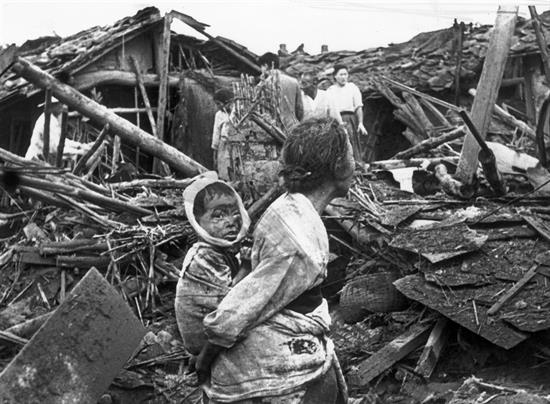NBC News THINK: The Korean War's 70th anniversary is the right moment to keep promises to Korean AmericansNBC News THINK | Wonseok Song & Congressman Jimmy Gomez
Washington,
June 25, 2020
It has been 70 years since the first North Korean soldiers advanced over the 38th parallel — established as the border between the Soviet-occupied north and the American-occupied south after World War II — and into South Korea on June 25, 1950. By June 27, an American-led U.N. Security Council resolution requested that member nations send troops to assist the South Koreans; by June 30, the first of what would eventually be 1.8 million American troops had already arrived from bases elsewhere in the region to assist. The Americans who went to Korea accounted for 90 percent of all foreign troops in the war; more than 36,500 of them died, along with over a million of the native population in Korea. That war — which is still technically underway, as only a temporary armistice has ever been signed — formed the basis of an ongoing relationship between the United States and the Republic of Korea, comprising both a formal alliance for defense, security and trade and a friendship based on the shared values of freedom, democracy, family, human rights and the dream of a lasting peace on the Korean peninsula. But the armistice, which was adopted in 1953, did more than end hostilities and start a new chapter in the Korean-American diplomatic relationship: Korean migration to the U.S. entered a new chapter, as well. The end of the active stage of the war helped spur a new wave of Korean migration to the United States, first through the mass adoptions of children — which began, but did not end, with those born during the war. An estimated 112,000 Korean-born children had been adopted by American families by 2017. However, despite living in the United States as part of American families for decades, at least 20,000 of them never got U.S. citizenship because of legislative loopholes and personal ambiguities. In 2000, as part of an effort to streamline the lengthy and costly international adoption process, Congress passed the Child Citizenship Act to grant automatic and retroactive citizenship to those born overseas and adopted as children. However, it limited those who would qualify to people under age 18 at the time of its enactment. As a result, as many as 49,000 people adopted from Korea (and a dozen other countries) from 1945 to 1998 still lack citizenship. The Adoptee Citizenship Act would correct this problem by providing automatic citizenship to foreign-born children lawfully adopted by American families who turned 18 years old before the effective date of the Child Citizenship Act. With 69 co-sponsors — both Democrats and Republicans in the House and the Senate — and our collective recognition of the 70th anniversary of the Korean War, this bipartisan bill may finally have the momentum it needs to pass Congress and make its way to President Donald Trump's desk for his signature. The second new phase of Korean migration to the U.S. came after the Immigration and Nationality Act of 1965, which eliminated nation-based quotas and helped facilitate greater family-based migration. That has led to a thriving Korean-American community of nearly 2 million people today — one of the largest such communities is in the heart of Los Angeles. That growth, however, has also meant that the lasting pains of the Korean War reach further than many people understand. As people immigrated from the Republic of Korea to the United States over the past 70 years, many of them left behind family members north of that infamous 38th parallel, which still marks the border in a divided Korea. Today, roughly 100,000 Americans of Korean descent have no formal mechanism to reach their remaining family members in North Korea, and they have been excluded in over 20 rounds of family reunions between North and South Korea. In March, the House without opposition passed the Divided Families Reunification Act, which would direct the State Department to take necessary diplomatic steps to address this humanitarian tragedy. The bill is still awaiting passage in the Senate, where members of both sides of the aisle have introduced a companion bill. Thus, as we remember the 70th anniversary of the start of the Korean War, we must also remember to address the remaining humanitarian issues, shared values and common threats faced by the United States and the Republic of Korea. Several loose ends are yet to be tied that continue to inflict pain and trauma on millions of Koreans and Korean Americans — not least of which is a formal end to a seven-decade war. We can and should pay our respects to all those who served in the Korean War and those who lost their lives because of it, but we must also honor them and their families by making sure that we keep families here together and reunite those who have been parted for far too long. Full Article |


